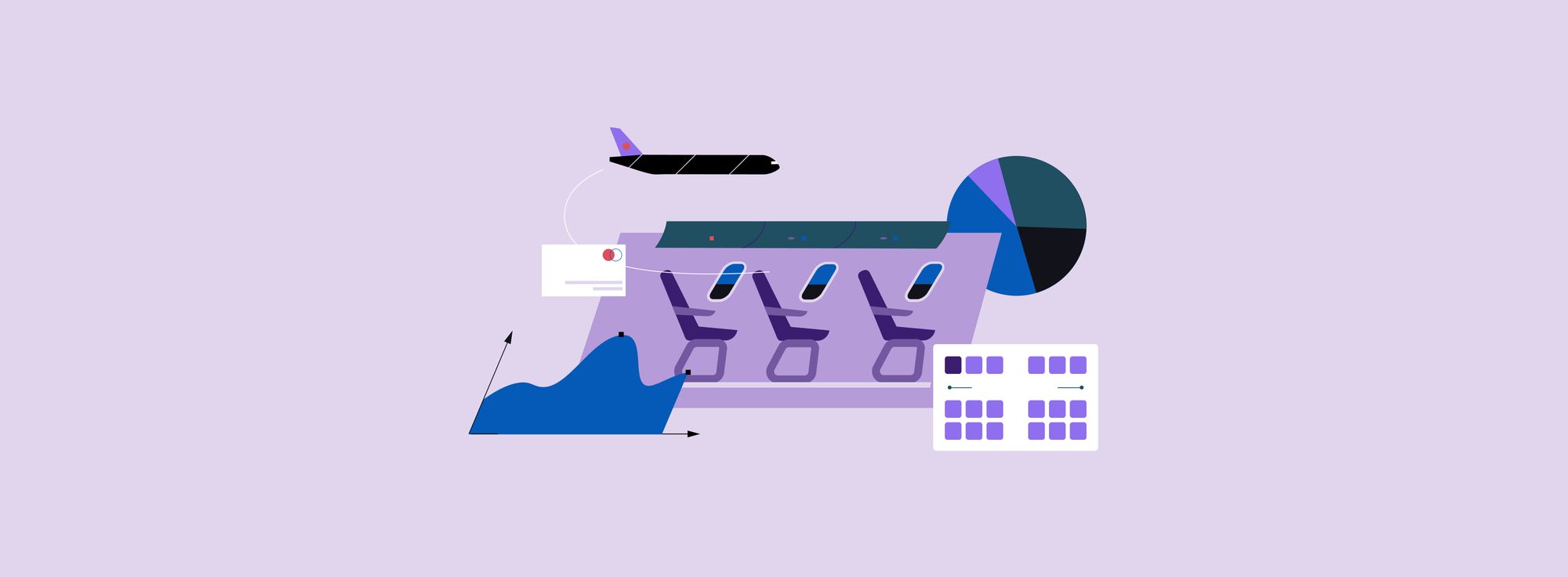How do I make money selling flights?
Our goal at Duffel is to make it unbelievably simple to start selling flights online. You integrate with our API, and then we take care of the rest: regulatory requirements, airline relationships, the works.

Our goal at Duffel is to make it unbelievably simple to start selling flights online. You integrate with our API, and then we take care of the rest: regulatory requirements, airline relationships, the works.
If you're thinking about starting to sell flights for the first time (whether you plan to use Duffel or not!), your first question will be, "how do I make money?"
In this blog post, we'll:
- take you through the history of how travel agents have made money selling flights
- share the options available to you from day one as a brand new travel business selling flights for the first time
- give you a preview of what you'll be able to do as you grow to grow your revenues
- show you how Duffel fits in - how we help you to build a sustainable, revenue-generating travel business
The good old days: airline commissions
Historically, travel sellers made most of their money from generous commissions from suppliers - airlines, hotels, car hire companies.
For hotels, this remains the case today - commissions of 15-30% are still common.
Unfortunately for you as a budding flight seller, there has been a downward spiral in airline commissions over the past few decades in most markets around the world.
As an example, until 2000, travel agents in the UK selling flights from British Airways earned 7% commission as standard. Today, they get nothing - unless they have a special agreement with the airline.
These changes have forced businesses selling flights to innovate and find new ways to make money.
Airline commissions are still available in some markets, and as you grow your business - but they're a non-starter if you're kicking off your business for the first time.
The modern way: set yourself apart from the competition, then mark up
The foundation of a profitable business is to sell things to your customers for more than they cost you. You need a margin. In travel, that normally means using markups or service fees.
This isn't as simple as it sounds for flights. Many consumers are very price-sensitive, and meta-search engines like Skyscanner and Google Flights make it almost effortless to compare options and find the cheapest price.
You'll definitely want to look at how you get your flights and make sure you're getting the best prices. But trying to win just by being the cheapest is a losing game - especially when you're getting started. There will always be someone with deeper pockets waiting to undercut you.
You'll need to find some way to differentiate yourself from your competitors to bring customers to you, even if your prices aren't the absolute lowest on the market.
So how can you differentiate yourself? We've seen so many great examples from Duffel customers:
- Evoke provide a next-level search and book experience with door-to-door multi-modal travel - including chauffeured Teslas, naturally!
- Ulysse offer out-of-this-world customer service - more crucial than ever with pandemic disruption to travellers' trips
- Flymble help customers spread the cost of their trip with flexible Buy Now Pay Later credit options
- Alternative Airlines accept a huge range of payment methods, from credit card to cryptocurrencies
- Worldia build curated package holidays, putting together an amazing trip with flights, hotel, transfers and more
Once you have a differentiated value proposition, you can think about where to add your margin and how much.
One option is to just add it to the headline price of the flight - but there are other ways too.
A common approach is to bundle together flights with other non-airline products (for example hotels, car hire and/or travel insurance) so it's not as obviously exactly how much is being charged for each component. This is even more powerful when you take into account the higher commissions offered on these other products. Flights can be a gateway to acquire customers and sell them the whole package!
A less common but great choice is to focus your markups on paid extras like seats and bags, which are sold deeper in the booking flow. Customers will happily pay a premium for a top-notch, well integrated experience.
Whatever you go for, you'll want to take an experimental approach, testing different pricing and markup levels to understand customers' willingness to pay.
No matter which of these options you choose, you'll need to make sure you stay in control of collecting payments from your customer. If you pass the customer's card to the airline so they can process the payment, you'll lose the ability to choose how much the customer is charged.
For another day: negotiating airline deals
On day one, you'll be a small fish in a big pond without the ability to attract or negotiate.
But as your travel business grows, you'll become more and more significant to airlines and will gain more and more leverage.
They'll want to incentivise you to sell their flights rather than their competitors' flights. At this point, you'll be able to negotiate special deals.
Sometimes, these deals involve commission - just like everyone used to get back in the day. These commission agreements are usually tiered to incentivise you to aim high - you might, for example, earn 2% if you sell $500,000 of their flights, 3% if you sell $1,000,000, etc.
Alternatively, you might be able to get access to special private fares (sometimes known as "negotiated fares") with lower prices or better conditions (for example reduced change fees, extra baggage allowance or more time to pay).
Some technology providers who help you connect to airlines' systems - for instance, global distribution systems (GDSs) like Amadeus or Sabre - may also be willing to pay you an "incentive" of a few dollars for each flight you sell, regardless of the price of the flight. Even these arrangements though are starting to break down with a recent announcement from Delta and Sabre which is likely to change how these agreements work.
How does Duffel fit in?
Duffel gives you the tools you need to start a profitable travel business:
- We get the best publicly available prices for flights - better than you'll find in a global distribution system (GDS) - thanks to our direct connections to airlines' systems (including NDC).
- We make it super simple to sell airlines' paid extras - for instance with our pre-built seat selection UI component that you can copy and paste onto your website
- With our Duffel Payments product, we enable you to collect payments from your customers and effortlessly bundle flights with other products or add markups on top of the price provided by the airline
You can sign up for Duffel in under 1 minute and get immediate access to our API test environment now. You can be live, selling flights and making money in less than a week.
